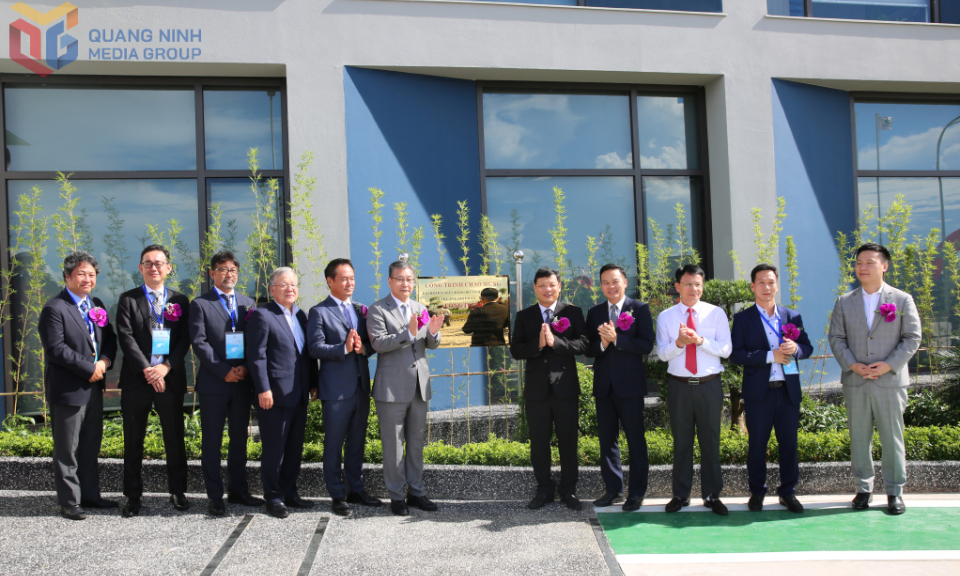Education reform aims to build happy schools
Minister of Education and Training Nguyễn Kim Sơn believes that when a positive school culture is effectively implemented, it manifests itself through the school's activities, naturally bringing positive values that make both teachers and students feel satisfied and happy.
Minister of Education and Training Nguyễn Kim Sơn talks to Việt Nam News Agency about the key tasks of the education sector in the 2023-2024 academic year, the fourth year of implementing the new curriculum.
What is the significance of the 2023-2024 academic year in the journey of implementing the reform of general education and what are the key tasks that the education sector will focus on?
The education sector will continue its reforms and efforts to enhance the quality of education and training. It's a year with a heavy workload and great significance, as the quality of the work will have a significant impact on the quality of the general education reform. Besides the ongoing review and implementation of classes following the new curriculum, this academic year will focus on the new curriculum for grades 4, 8, and 11, as well as preparing for the implementation of the new curriculum for grades 5, 9, and 12.
We have identified that this academic year requires concentrated leadership, management, support, monitoring, and high-level oversight to complete the work and maintain the momentum towards completing the general education reform roadmap.
In the process of reforming general education, this year we also set the task of deepening the reforms in each educational content, subject and activity. Reforms are taking place in subjects such as literature, history, mathematics, fine arts, foreign languages and others. There are some issues that have arisen during the reform process, such as the need for greater support and training for teachers and the provision of better conditions to enhance quality.
The development of the Teacher Law, with the expected completion and submission to the National Assembly in 2024, is also a significant task for this academic year. If passed, this legislation will bring about positive institutional changes aimed at the development of the teaching profession in particular and the education sector in general.
This year, the education sector also needs to focus on strengthening the implementation of school culture, school psychology, creating happy schools, and preventing school violence.
The Ministry of Education and Training will also pilot the new pre-school education programme. The curriculum has been developed, and this year it will be put into practice before full-scale implementation.
Additionally, continuing education will also have innovation, including improving conditions, teacher staff, as well as teaching, testing and assessment.
The process of implementing the reform of general education has faced many difficulties and challenges. Where do these difficulties come from and what solutions does the education sector have to find in the near future?
Deeper reform means greater challenges. It requires more consensus from society, the people, and parents to all work together and support the education sector.
For educators, I believe that the extent of their innovation determines the extent of educational reform. One of the difficulties is that the old teaching methods have become deeply ingrained habits for many teachers, and not all teachers are willing to adapt to the new ways of teaching. Overcoming this requires significant effort, determination, and a willingness to change from the teaching staff. We are doing a lot to encourage and support teachers, striving to ensure that teachers have the motivation and support needed for innovation.
This innovation gives teachers a lot of autonomy and creativity.
Teachers can choose their teaching methods, testing, assessment and learning materials to educate students to harness their individual capabilities. The teacher will act as an organiser, guide, orientator, and supporter for students.
To achieve this, the capacity of educators needs more renewal and enhancement. During the initial stages of the reform, teachers face many disadvantages and challenges, including an increased workload and complexity, while the support, conditions, income, and quality of life haven't seen significant changes, affecting the teachers' psychology.
Due to pressure of innovation and life, a large number of teachers have quit their jobs.
Meanwhile, the recruitment situation in various localities is facing many difficulties. In remote and disadvantaged areas, it's challenging to recruit teachers in foreign languages, informatics and fine arts. In some provinces in the Red River Delta, it's difficult to recruit kindergarten teachers.
Additionally, difficulties also come from the preparation of local conditions for the renovation process. With the requirements of the new method, it is necessary to ensure the number of students in class, the ratio of students and teachers, classrooms, libraries, subject-specific classrooms and experiential education.
In this academic year, the education sector will enhance the implementation of school culture and the creation of happy schools. This is not a new issue and has been discussed for many years, but in reality, interpersonal relationships within schools can still be complex, sometimes causing public concern. What is a happy school and what should be done to build a school with positive culture and without violence?
I believe that a happy school is first and foremost something perceived by teachers, students, and parents. From the education sector's perspective, the first crucial step is to promote a positive school culture. When a positive school culture is effectively implemented, it manifests itself through the school's activities, naturally bringing positive values that make both teachers and students feel satisfied and happy.
We are currently reviewing and updating the school code of conduct to make it more responsive and suitable for the requirements of educational reform. All secondary schools across the country have this code of conduct, but at this moment, it needs to be reviewed and renewed to align with the changing fundamental and comprehensive context of schools undergoing reform.
In order to have a school culture and a happy school, first of all, professional teaching and learning must be done well, teachers must teach well and students must study well. It is necessary to create opportunities for students to freely express themselves, develop their individuality and promote creativity and independent thinking.
A happy school aims to cultivate core values of love, safety and respect. In such a school, it is important to focus on not only teaching subjects but also teaching humanity.
School culture requires the exemplary role of educators to guide students. Of course, a school with a healthy culture should be free from violence. However, school violence has become more complex due to various reasons.
After a period of online learning due to the COVID-19 pandemic, students have been psychologically affected, contributing to the increase in school violence.
In addition, inappropriate media content and the negative influence of social media have also led to the rise in school violence. Furthermore, the loosening of the connection between families and schools is another reason, with many students lacking care and attention from their families, especially from their parents.
I hope that schools will strengthen the cooperation between schools and parents, emphasising the role of homeroom teachers in understanding students' psychology and helping them develop problem-solving skills. The role of principals is also crucial in monitoring the situation, being proactive, and taking preventive measures to address school violence.
On the occasion of the new school year, what message would you like to convey to teachers and students?
The new school year begins with many tasks and challenges ahead. It's a pivotal year in the education reform process, with numerous difficulties, but also promising achievements ahead.
I hope that all educators and students continue to strive, innovate, and embrace change to fulfil their responsibilities. I also hope that the entire community, including parents, will continue to support the education sector in the upcoming period.






